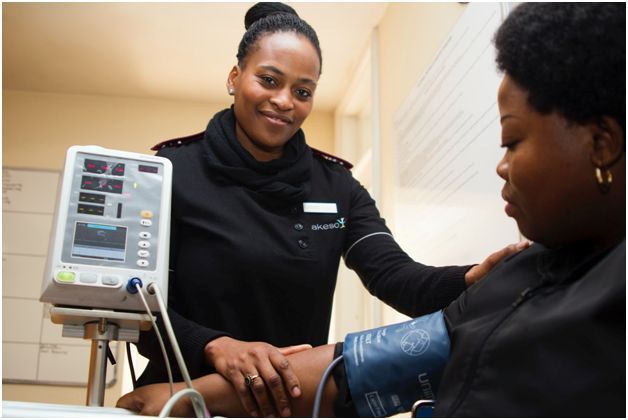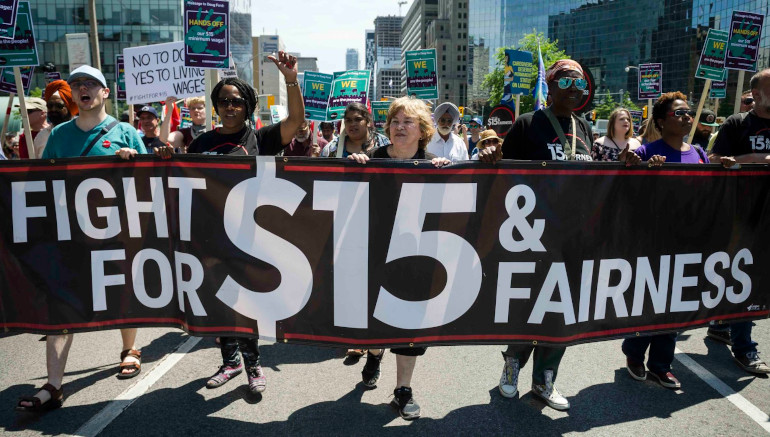Socialist Alternative interviewed Amanda
Where do you work, and what is your job there?
I work for a pharmacy, as a Community Mental Health Worker, in a medication monitoring program. My job involves going around to a list of patients in the community, who are certified under the BC Mental Health Act, to give them their daily medicine, and witness them taking it. The Mental Health Act is for those with severe mental illnesses, and once someone has signed the form, it gives the government permission to give medicine and even hospitalize you against your will. My patients are technically on leave from the hospital, and to remain in the community, they need to meet certain conditions, such as taking their medication.
How is your workplace responding to the pandemic?
Honestly, the response has been really underwhelming, and much later than it should have been. Now they have taken precautions, such as giving all workers masks and goggles, and everyone got a box of gloves. But it hasn’t gone beyond the level of PPE. This has meant that many of our patients are taking precautions themselves, which can be extremely difficult with their waning mental abilities. I don’t think enough has been done to make patients feel safe while I’m delivering their medication.
How has your workplace changed since the pandemic began?
Not really, no. As I’ve said, our workplace response seemed too little, too late, and management basically left it up to the employees to do our own due diligence on preventing the spread of the disease. This attitude in our health system of making do is now giving us payback, with coronavirus wreaking havoc on our underfunded system. I don’t really see my co-workers very often, just at the beginning and end of shifts, so that helps for my ability to isolate, but doesn’t leave me with much of a support network.
I really worry about the patients, too. Some of the medications have side effects that are immuno-compromising, and these patients require constant blood work to ensure their health, but there’s been no effort to make sure this is happening. A good percentage of my patients are elderly as well, which is another worry. Some patients who used to love seeing me are now very worried whenever I show up. The same people are in the program long term, and I’ve become a part of their lives, we have relationships, and I make sure they aren’t declining, but this has become nearly impossible now.
What was your opinion of the BC health care system before the pandemic, and has it changed? If so, how?
I know that the BC health system was under funded, and this opinion hasn’t changed that much. We are one of the lowest spenders on health care per capita, but have one of the oldest populations, with more chronic disease to manage, etc. Also, different areas of the health system are funded differently, and this leads to asymmetries in care. For example, cardiology is well-funded, and if waiting lists get too long, they pour money into it. However, other areas like mental and community health, both of which are very important for the elderly, are in desperate need of reform, and are putting BC residents in the line of COVID-19 fire.
Has your job been negatively affected by the government response? If so, how?
I definitely feel like we’ve been left out in the cold, and I’m worried for myself and my patients because of it. There are many simple things that the government could have done, something like a safety audit of our workplace and procedures, to implement good measures, but once again, the response was too little, too late. I don’t think it even necessarily lines up with Public Health Canada guidelines, and there is not enough accountability for these lacks, either.
How are you and your co-workers coping with the added strain?
As I said, I don’t see my co-workers too often. So personally, I have been religiously sanitizing everything, and since my job involves getting out of the house, it’s actually been nice to get outside. Now, I’m the one excited to see my patients, rather than vice versa, like it normally is. I’m much more worried about them though, especially the elderly ones. I’ve been asking if they’re staying safe, making sure they’re not going out, etc.
How could your workplace be better prepared for a similar event in the future?
We need to provide workers like myself with better information. There have been no emails/bulletins/pamphlets on how to be safe and keep everything clean, properly use PPE, and I think that that’s incredibly dangerous. We aren’t licensed workers like nurses or social workers, so I worry that I don’t have the right training to do my job safely, even though I have an important job. It still carries huge amounts of risk, and I have not been informed as to how to deal with the risks.
What’s something you would like the public to know about your work during the pandemic?
There’s a price to pay for not caring about vulnerable populations, and I think that we will be paying that price soon. Most of my patients are not well off, with many living in SROs, supportive housing, homeless shelters, or in BC housing units. I worry that COVID-19 is going to rip through the low socio-economic status communities, and under-funded elderly populations who lack other social support structures, ending in horrible tragedy, and deaths that could have been avoided by proper preparation and funding.
Are there any ways that people can support health care workers in BC that you’d like to share?
Yes. I think we need to provide any support we can to health care workers, so that their time is freed up to completely devote to their work and caring for themselves. For example, a lot of health care workers are single parents, so they all should have free child care. It is all very good calling them heroes, but they need real support. Call your MLA and put pressure on them to pick up the slack, because even though we have come into this crisis unprepared, we can still mitigate the damage, and save people’s lives in the process.




